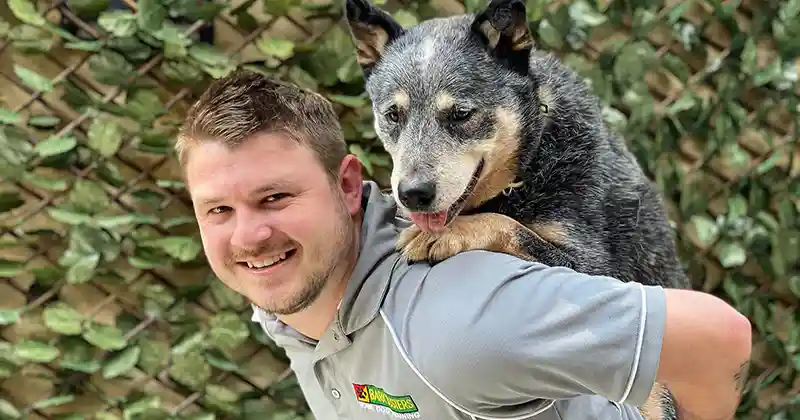Health and Happiness: Nurturing Your Four-Legged Companion

Health and Happiness: Nurturing Your Four-Legged Companion
In a world filled with hustle and bustle, there’s something truly magical about the unconditional love and companionship of our four-legged friends. Whether you have a loyal Labrador, a playful Pomeranian, or a regal Ragdoll cat, the bond between humans and their pets is a source of immense joy and, dare I say, health and happiness. In this article, we’ll embark on a journey to discover how to nurture your furry companions, ensuring their well-being and, in turn, enhancing your own happiness. So, grab a leash or a toy because we’re diving into the world of pet care, one paw at a time.
Unveiling the Secrets of a Wagging Tail
The Canine Connection: Understanding Your Dog’s Needs
Dogs are more than just pets; they’re family. But understanding their unique needs is crucial to fostering a healthy and happy relationship. From daily walks to nutritious meals, discover the keys to your dog’s heart.
LSI Keywords:
- Dog exercise routine
- Canine nutrition
- Dog grooming tips
Have you ever wondered why your dog’s tail wags with such enthusiasm when you return home? It’s not just because they missed you (although that’s undoubtedly a part of it). It’s because dogs thrive on routine, exercise, and a balanced diet. Just like us, they need physical activity to stay fit and mental stimulation to stay sharp.
Start by establishing a consistent exercise routine. A daily walk not only keeps your pup in shape but also strengthens the bond between you two. Remember, a tired dog is a happy dog! Alongside exercise, pay close attention to your furry friend’s nutrition. Ensure they receive a well-balanced diet rich in nutrients. You might even consider consulting a veterinarian for dietary recommendations tailored to your dog’s breed and age.
Grooming is another essential aspect of dog care. Regular brushing not only keeps their coat shiny but also provides an opportunity to check for any unusual lumps or bumps. It’s a win-win – a pampered pooch and peace of mind for you.
Feline Finesse: Catering to Your Cat’s Whims
Cats are known for their independent nature, but they too require dedicated care and attention. Discover the art of keeping your cat content and purring with delight.
LSI Keywords:
- Cat enrichment activities
- Feline dietary needs
- Cat grooming techniques
Cats are like the enigmatic artists of the pet world. They have their quirks and idiosyncrasies, but once you understand their preferences, you’ll be well on your way to fostering their happiness. Start by creating an enriching environment for your feline friend. Cats adore puzzles, toys, and vertical spaces to explore. Invest in interactive toys and scratching posts to keep them engaged.
Diet plays a pivotal role in your cat’s well-being. Cats are obligate carnivores, which means they require a diet rich in animal protein. Consult your veterinarian for advice on choosing the best cat food that aligns with their dietary needs. And don’t forget the fresh water – cats can be quite finicky about their water source.
When it comes to grooming, some cats are low-maintenance, while others require regular brushing. Long-haired breeds, in particular, benefit from daily grooming to prevent matting. Remember, a content cat is one that can indulge in its natural behaviors while feeling safe and loved.
Feathered Friends and Pocket-Sized Pals
A Winged World: Caring for Pet Birds
Birds bring an element of vibrant beauty into our lives. If you’re a bird owner, learn how to create a harmonious habitat for your avian companion.
LSI Keywords:
- Parrot enrichment ideas
- Birdcage setup
- Avian health check
From the melodic songs of canaries to the colorful plumage of parrots, pet birds offer a unique charm. To ensure their happiness, start by providing a spacious and stimulating cage. Birds need room to spread their wings and engage in natural behaviors like hopping and flying short distances within their enclosure.
Enrichment is key to a bird’s well-being. Rotate toys and perches regularly to keep your feathered friend mentally engaged. Some birds even enjoy puzzles and foraging toys that challenge their intellect.
Additionally, pay close attention to your bird’s diet. Different species have varying nutritional requirements, so consult with an avian veterinarian to ensure you’re offering the best possible diet. Fresh fruits and vegetables should also be on the menu to provide essential vitamins and minerals.
Small and Mighty: Nurturing Pocket Pets
Small pets like hamsters, guinea pigs, and rabbits may be tiny, but they have big personalities. Discover how to create a loving home for your petite pals.
LSI Keywords:
- Guinea pig cage setup
- Hamster exercise wheel
- Rabbit hutch essentials
While small in stature, pocket pets have a remarkable capacity for forming bonds with their owners. To ensure their happiness, invest in the right habitat. Guinea pigs, for instance, need spacious cages with hideaways and tunnels to explore. Hamsters, on the other hand, thrive in environments enriched with exercise wheels and tunnels.
Nutrition is crucial for these little ones. A well-balanced diet with the right mix of pellets, fresh vegetables, and hay is essential. Be sure to research the specific dietary requirements of your chosen pocket pet.
Grooming needs are minimal for these tiny companions, but regular cage cleaning and bedding changes are a must. Creating a clean and comfortable environment will contribute to their overall happiness.
FAQs: Your Pet-Care Queries Answered
FAQ 1: How often should I walk my dog?
Answer: Daily walks are ideal for most dogs. The frequency and duration may vary based on breed, age, and energy level. Consult your vet for personalized recommendations.
FAQ 2: What should I do if my cat stops using the litter box?
Answer: A sudden change in litter box habits can be a sign of underlying issues. Consult with a vet to rule out medical problems and consider potential stressors in your cat’s environment.
FAQ 3: Can I train my pet bird to talk?
Answer: Some bird species, like parrots, have the ability to mimic speech. Training methods and success may vary, so consult with a bird behavior expert for guidance.
FAQ 4: How can I keep my guinea pig’s teeth healthy?
Answer: Provide your guinea pig with plenty of hay to chew on. This helps naturally wear down their teeth. Regular check-ups with a veterinarian are also important.
FAQ 5: Is it safe for my hamster to use an exercise wheel?
Answer: Yes, exercise wheels are suitable for hamsters and provide important physical activity. Ensure the wheel is an appropriate size for your hamster to prevent injuries.
FAQ 6: What’s the ideal temperature for my rabbit’s hutch?
Answer: Rabbits are sensitive to extreme temperatures. Keep their hutch between 50-70°F (10-21°C) to ensure their comfort and well-being.



